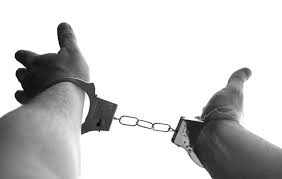Driving while under the influence (DUI) is the term for operating a motor vehicle while under the influence of alcohol or other drugs; “driving while ability impaired” (DWAI) is a similar charge. Regardless of the charge you are facing, the consequences of your arrest could be severe and could affect your job or other aspects of your life. For this reason, you should have an experienced criminal defense lawyer on your side. A DUI charge and a DUI conviction are not the same thing, though. You must comprehend these distinctions and the types of evidence needed to be used against you in your DUI case if you or a loved one is being charged with DUI but has not yet received a conviction.
What Is a Dui Conviction?
Every state defines driving while intoxicated differently. These definitions outline the exact restrictions as well as the conditions that prosecutors must fulfill to get a conviction for DUI in a court of law. However, the fundamental requirements of all states’ DUI statutes are the same, requiring documentation showing the offender was driving while intoxicated.
The First Evidence That the Police Gather When They Stop You
According to Colorado state law, it is illegal to operate a vehicle or be in actual physical control of one while under the influence of alcohol or narcotics. Anyone sitting in the driver’s seat of an automobile with the engine running, hands on the steering wheel, or car keys in the ignition is subject to this legislation. Naturally, it also applies to actual driving on a public road while intoxicated, popularly known as “drunk driving.”
It’s important to know Colorado’s DUI rules if you are pulled over or stopped by the police. While behind the wheel, you may be wondering about things like whether to submit to a breathalyzer or blood test, the potential consequences of refusing a chemical test, and whether DUI charges carry the same penalties as a conviction.
Colorado law enforcement officers are trained to identify driving habits that may indicate potential impairment due to alcohol.
The Evidence Are:
- When driving, swerving, or weaving
- Operating a vehicle between or over many lanes
- Driving too slowly or too quickly
- Not turning on your headlights at night
- Not giving a signal before changing lanes
- Reacting slowly when traffic signals change
- Ignoring a stop sign and continuing
- To drive while intoxicated
After pulling you over, the policeman will probably inquire as to whether you have been using drugs or alcohol. However, remember that you do not have to respond to these inquiries and reveal your identity.
Additionally, they might ask you to take part in field sobriety tests, often known as “roadsides” or “PBTs. The ability to undergo field sobriety tests is completely elective; it is not a requirement.
The purpose of the law is to safeguard your rights. If you are guilty of driving while drowsy, the police may have probable cause due to video evidence, your verbal admission, or the arresting officer’s observations of your conduct during the field sobriety test.
Important Evidence Needed for Dui Conviction
Although you have the option to decline field sobriety tests, Colorado’s Express Consent Law prohibits you from declining a chemical test to determine your blood alcohol content (BAC) if the police have reasonable suspicion that you were in physical control of a car after you were over the legal limit. You can give a breathalyzer test or a blood test for BAC. If you fail to comply with the test, you may face DUI charges, and your license will be immediately suspended.
Your BAC findings are a crucial piece of evidence in your DUI case. The authorities will almost instantly know the percentage of your blood alcohol level because breath tests yield swift findings. You will probably face a DUI charge immediately if it is higher than 8. In contrast, you can face DWAI charges if your blood alcohol content is between.05 and.08.
The turnaround time for blood test results is significantly greater—in certain situations, months. Nonetheless, the outcome will probably resemble the breathalyzer test quite a bit. Recall that before administering these chemical tests, you do not have the right to consult with legal counsel. In a stand-alone DUI prosecution, these test results can be the most crucial piece of evidence.
Evidence Needed for Dui Conviction: DUI Case Timeline
Two distinct proceedings follow a charge of operating a vehicle while intoxicated or impaired. The Division of Motor Vehicles, or DMV, is a branch of the Colorado Department of Revenue that oversees your driving rights. The other is the criminal courtroom proceeding.
The DMV
The Colorado DMV is the body that decides whether or not to take away your driving privileges. On rare occasions, the site of your DUI arrest may result in the seizure of your license. However, licensing penalties differ depending on several variables, including your blood alcohol content (BAC), prior convictions, and whether you agree to or reject chemical testing.
You have seven days to give the DMV a request for a hearing. In the event of a DUI arrest, this hearing is essential to understanding the limitations of your license. If an interlock device is set up and fulfills all requirements, Colorado’s license suspension time for a first DUI conviction is normally cut to nine months.
It is advisable to speak with a lawyer before the DMV hearing.
The Courts
Upon your arrest for possible DUI, you will receive a summons for a court hearing, which usually lasts for 30 to 60 days thereafter. That’s how the legal process for your lawsuit begins. When the arrest occurs and the court date comes around, the local prosecutor’s office will receive the charge. Finally, the day of your court appearance is approaching, and you will have to enter a plea of guilty or innocent.
Information the Prosecution Will Try to Utilize against You
The prosecution establishes, or makes an effort to establish, a DUI charge against the defendant during a trial. However, just because someone faces charges with DUI does not mean they will be guilty of the crime. Through the use of expert witnesses, law enforcement officers, or other witnesses to the actual driving, the prosecution must establish that the defendant drove while under the influence of drugs or alcohol.
Evidence of DUI includes the driver’s blood alcohol content (BAC), additional test results, and whether the defendant did poorly on field tests. The jury or judge will need sufficient evidence to establish driving under the influence beyond a reasonable doubt. The prosecution has to show that the defendant was operating a vehicle on a public road while under the influence of alcohol or drugs.
The prosecution’s case and the evidence it can present to the jury will play a significant role in the jury’s decision to find the defendant guilty of operating a vehicle while intoxicated. For the prosecution to successfully prove your case, BAC test results are crucial. The per se DUI rules in Colorado mandate that a jury find a person guilty if their blood alcohol content is at least.
FAQs
What proof is required in Texas for a DUI conviction?
The prosecutor will probably offer the following evidence in an attempt to establish your guilt of driving while intoxicated (DWI): the outcomes of your breathalyzer or blood test. Your field sobriety test results. Witness testimony.
What proof is required in California for a DUI?
A chemical test, video footage, physical evidence, and other sources may all be used as evidence in a DUI case. A DUI attorney can contest any type of evidence. Every DUI case in California is resolved according to the strength of the evidence.
What proof is required in Florida to convict someone of DUI?
There are several ways for Florida law enforcement to prove that a person accused of DUI was operating a vehicle. For example, the events leading up to the traffic stop and the arrests that followed can be captured on camera. Evidence may also include the accused’s statements as well as those of onlookers and police personnel.
In Georgia, can you be charged with DUI without any proof?
Additionally, if circumstantial evidence is strong enough to persuade a jury that a driver who has consumed alcohol is less safe to operate a vehicle and is therefore unsafe on the highway, the State of Georgia may pursue legal action without the need for a breathalyzer, blood test, or urine test.
Evidence Needed for Dui Conviction: Conclusion
A lawyer with experience in this field of law should be contacted by anyone accused of driving while intoxicated. Even if you decide not to retain legal counsel, having a consultation can be quite beneficial. A competent local attorney should be able to advise you about your state’s laws, the plea negotiating practices of the local prosecutor’s office, and the consequences for your driver’s license. Potential defenses can also be investigated by a lawyer.



